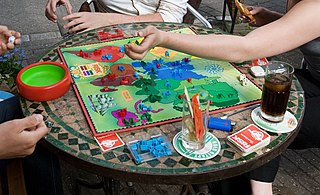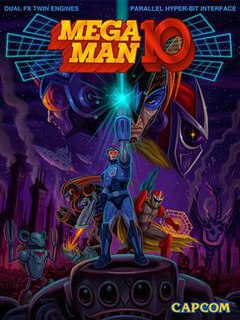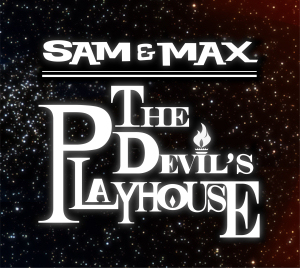
A Eurogame, also called a German-style board game, German game, or Euro-style game, is a class of tabletop games that generally has indirect player interaction and abstract physical components. Eurogames are sometimes contrasted with American-style board games, which generally involve more luck, conflict, and drama. They are usually less abstract than chess or Go, but more abstract than wargames. Likewise, they generally require more thought and planning than party games such as Pictionary or Trivial Pursuit.

Risk is a strategy board game of diplomacy, conflict and conquest for two to six players. The standard version is played on a board depicting a political map of the world, divided into forty-two territories, which are grouped into six continents. Turns rotate among players who control armies of playing pieces with which they attempt to capture territories from other players, with results determined by dice rolls. Players may form and dissolve alliances during the course of the game. The goal of the game is to occupy every territory on the board and, in doing so, eliminate the other players. The game can be lengthy, requiring several hours to multiple days to finish. European versions are structured so that each player has a limited "secret mission" objective that shortens the game.

In ice hockey, the goaltender or goalie is the player responsible for preventing the hockey puck from entering their team's net, thus preventing the opposing team from scoring. The goaltender usually plays in or near the area in front of the net called the goal crease. Goaltenders tend to stay at or beyond the top of the crease to cut down on the angle of shots. In today's age of goaltending there are two common styles, butterfly and hybrid. Because of the power of shots, the goaltender wears special equipment designed to protect the body from direct impact. The goalie is one of the most valuable players on the ice, as their performance can greatly change the outcome or score of the game. One-on-one situations, such as breakaways and shootouts, have the tendency to highlight a goaltender's pure skill, or lack thereof. No more than one goaltender is allowed to be on the ice for each team at any given time. Teams are not required to use a goaltender and may instead opt to play with an additional skater, but the defensive disadvantage this poses generally means that the strategy is only used as a desperation maneuver when trailing late in a game or can be used if the opposing team has a delayed penalty.

Ticket to Ride is a railway-themed German-style board game designed by Alan R. Moon. It was illustrated by Julien Delval and Cyrille Daujean and published in 2004 by Days of Wonder. The game is also known as Zug um Zug (German), Les Aventuriers du Rail (French), Aventureros al Tren (Spanish), Wsiąść do pociągu (Polish), and Menolippu (Finnish).
A pox party is a social activity where children are deliberately exposed to an infectious disease. Such parties were done before vaccines were available, to "get it over with," or because it was believed childhood disease would be less severe than disease as an adult. For example, measles is more dangerous to adults than to children over five years old. Deliberately exposing people to diseases is discouraged by public health officials in favor of vaccination. Flu parties are also sometimes done. There exist variations of pox parties that involve shipping infectious material. In many parts of the world shipping infectious items is illegal or tightly regulated.

Destroy All Humans! Path of the Furon is an action-adventure video game developed by American studio Sandblast Games and published by THQ. The game is set in the 1970s and is the fourth installment in the original Destroy All Humans! franchise. It was released December 1, 2008 in North America for the Xbox 360. Path of the Furon expands on the open world format of the previous Destroy All Humans! games, with five open worlds on the ground and in the air to obliterate with weapons and alien powers.

In ice hockey, a goaltender is credited with a save when they prevent a shot by the opponent from entering the net. A goaltender's efficiency in stopping shots, the save percentage, is calculated as a percentage of shots stopped divided by the total number of shots on goal. If a goaltender makes all the saves within a game it is called a shutout. In association football this is called a clean sheet.

Destroy All Humans! is an open world action-adventure video game franchise that is designed as a parody of Cold War-era alien invasion films. Destroy All Humans! is available for the PlayStation 2 and Xbox, Destroy All Humans! 2 is available for the PlayStation 2 and Xbox, Destroy All Humans! Big Willy Unleashed is available for the Wii, and Destroy All Humans! Path of the Furon is available for the Xbox 360 and PlayStation 3. Destroy All Humans! and Destroy All Humans! 2 were ported to the PlayStation 4 on October 17, 2016 and November 28, 2016 both being upscaled to 1080p. On April 23, 2018 Destroy All Humans! was added to Xbox’s backwards compatibility program.

Mary Flanagan is an artist, author, educator, and designer. She pioneered the field of game research with her ideas on critical play, and has written five books. She is the founding director of the research laboratory and design studio Tiltfactor Lab and the CEO of the board game company Resonym. Flanagan's work as an artist has been shown around the world and won the Award of Distinction at Prix Ars Electronica in 2018.

Pandemic is a cooperative board game designed by Matt Leacock and first published by Z-Man Games in the United States in 2008. Pandemic is based on the premise that four diseases have broken out in the world, each threatening to wipe out a region. The game accommodates two to four players, each playing one of seven possible roles: dispatcher, medic, scientist, researcher, operations expert, contingency planner, or quarantine specialist. Through the combined effort of all the players, the goal is to discover all four cures before any of several game-losing conditions are reached.

Mega Man 10: Threat from Outer Space!! is an action-platform video game developed by Inti Creates and Capcom. It is the tenth main entry of the original Mega Man series. The game was released as a downloadable title for the console gaming services WiiWare, PlayStation Network (PSN), and Xbox Live Arcade (XBLA) during March 2010. The game was also given a physical release along with four other Capcom titles from different franchises in the Capcom Essentials Pack for PlayStation 3 and Xbox 360. It was later released again for a physical and digital release as part of Mega Man Legacy Collection 2 alongside Mega Man 7, Mega Man 8 and Mega Man 9 for the PlayStation 4, Xbox One, and Microsoft Windows, as well as the Nintendo Switch in May 2018.
The Tiltfactor Laboratory is a serious game research center located at Dartmouth College in Hanover, New Hampshire. Its work is centered on critical play an approach that uses games and play to investigate and explain ideas. Outcomes from the lab's work range from scholarly papers and conference presentations to video games, urban games, board games, and performances. Tiltfactor's motto is "Game Design for Social Change."

Sam & Max: The Devil's Playhouse is a graphic adventure video game developed by Telltale Games. It is the third and final season of the Sam & Max episodic series created by Telltale, following Sam & Max Save the World and Sam & Max Beyond Time and Space. The first episode was released as one of the first apps for the iPad on April 2, 2010, and was released for Microsoft Windows, OS X, and the PlayStation 3 on April 15, 2010. A remaster by Skunkape Games is currently in development.

Words with Friends is a multiplayer word game developed by Newtoy. Players take turns building words crossword-puzzle style in a manner similar to the classic board game Scrabble. The rules of the two games are similar, but Words with Friends is not associated with the Scrabble brand. Up to 40 games can be played simultaneously using push notifications to alert players when it is their turn. Players may look up friends either by username or through Facebook, or be randomly assigned an opponent through "Smart Match". Players can also find potential opponents using Community Match.

Galaxy Trucker is a science-fiction board game for two to four players. The game was developed by Vlaada Chvatil, with graphics designed by Radim Pech. The Czech version of the game was released in 2007 by Czech Games Edition, and a German version was published in the same year by Heidelberger Spieleverlag.

Plague Inc. is a real-time strategy simulation video game, developed and published by UK-based independent games studio Ndemic Creations. The player creates and evolves a pathogen in an effort to annihilate the human population with a deadly pandemic. The game uses an epidemic model with a complex and realistic set of variables to simulate the spread and severity of the plague. It was released on 26 May 2012 for iOS and Microsoft Windows, 4 October 2012 for Android and 2015 for Windows Phone.

Buffalo is a card game that requires players to think of people or characters who match combinations of descriptions. It was developed by the Tiltfactor Laboratory as part of the National Science Foundation (NSF) funded project called "Transforming Science, Technology, Engineering, and Math (STEM) For Women and Girls: Reworking Stereotypes & Bias." The game was runner-up for Best Digital Game in the 2012 Meaningful Play Awards.

Awkward Moment® is a party game that puts 3-8 players in awkward social situations. It was developed by the Tiltfactor Lab as part of a National Science Foundation-funded project called “Transforming Science, Technology, Engineering, and Math (STEM) For Women and Girls: Reworking Stereotypes & Bias.” It is a 20 minute game for middle and high school students. The game won Meaningful Play's best non-digital game award in 2012.

Zombiepox is a cooperative board game in which players fight the spread of zombies that threaten to take over the town. It was developed by Tiltfactor Laboratory, a game research center located at Dartmouth College, New Hampshire, focusing on games and play that investigate and explain ideas.
















